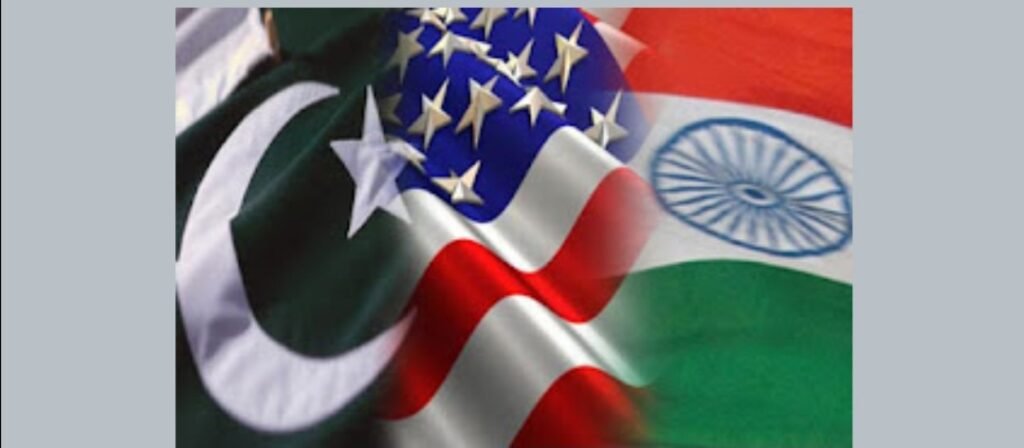United States back in balance between India & Pakistan
US Secretary of State Antony Blinken and Indian Secretary of State Subrahmanyam Jaishankar hold a press conference in Washington, DC.After years of favoring New Delhi, the United States is now back in balance between India and Pakistan.
The ten-year deterioration of ties with Islamabad, spurred by Pakistan’s support for the Taliban in Afghanistan and its propensity for China, had turned Washington’s conventional thinking into a clear path: that a democratic, anti-Chinese India “in” and an autocratic India, pro-Chinese Pakistan is “out” of the American camp.
This is no longer the case with the American response to India’s constant coverage and bets on Russia, as well as Pakistan’s diplomatic rapprochement and counter-terrorism cooperation.
Indeed, the future of the U.S. positioning in South Asia appears to change as Washington takes the ball game with both nuclear-armed rivals, as it has for decades. While India abstained from voting on a US-backed UN Security Council resolution rejecting Russia’s illegal annexation of Ukrainian territory. This was not the first time Indians refused to support Americans: every UN resolution tabled since the start of the war against Russian aggression in Ukraine has seen India moving away from the crime scene.
For Indian viewers who recognized New Delhi’s declared policy of strategic autonomy – effectively an approach to order that we love but based on our values - the latest abstention was a disappointment, just days after Prime Minister Narendra Modi was praised by Washington for telling Vladimir Putin that this was not “an era of war”.
While Indian diplomats insist that dialogue is the only answer to dispute resolution, Modi’s government is now being criticized even at home for speaking on both sides, especially as the war takes on a nuclear dimension.
Pakistan as a plan B?
But Washington doesn’t just watch India play on both sides. Responding to New Delhi’s coverage of its own, the United States is preparing to balance military relations with Islamabad.
After suspending all military aid in 2018 over Pakistan’s support for the Taliban in Afghanistan, the US State Department backtracked last month, resuming essential military assistance to Islamabad.
India, of course, is in turmoil. After all, the F-16 fighter-bomber – which the Americans maintain for the Pakistanis – was used to shoot down at least one Indian Air Force MiG-21 in 2019.
While the State Department brushed off India’s protests saying it values its relationship with both sides, Pakistan appears to have been left out of Washington’s niche.
Last week, the state celebrated Pakistan’s foreign minister for a week-long visit, capped off with a ceremony commemorating 75 years of diplomatic relations at the Museum of American Diplomacy. (His Indian counterpart – who was in town around the same time complaining about the arms trade in Pakistan – was also treated royally with a dinner at Blinken.)
As for the Pakistanis, the boys are back in town. This week, the Pentagon welcomes the all-powerful Pakistani army chief, General Qamar Javed Bajwa, accused of having played a key role in the ousting of former Prime Minister Imran Khan, an anti-American populist on the gene Bajwa’s agenda: Pakistani support for Washington’s anti-terrorist operations in Afghanistan and confrontation with the Taliban, ISIS-K and al-Qaeda.
“The United States finally seems to realize that India’s need for cheap Russian oil and Russian weapons trumps everything else, despite New Delhi’s vehement proclamations of a rules-based international order” said Uzair Younis, director of the Pakistan Initiative at the Atlantic Council.
United States back in balance between India & Pakistan
Given this context, he adds, Washington is finally realizing that it must also “employ a parallel diplomatic channel with Pakistan, especially since New Delhi is unlikely to be weaned from its dependence on the ‘regard to Russian energy and weapons anytime soon’.
However, India will remain important to America. Admittedly, this maneuver did not destroy the proximity between Washington and New Delhi – China remains their common rival after all – but it is seen as a tactical response to India’s relations with the Russians.
